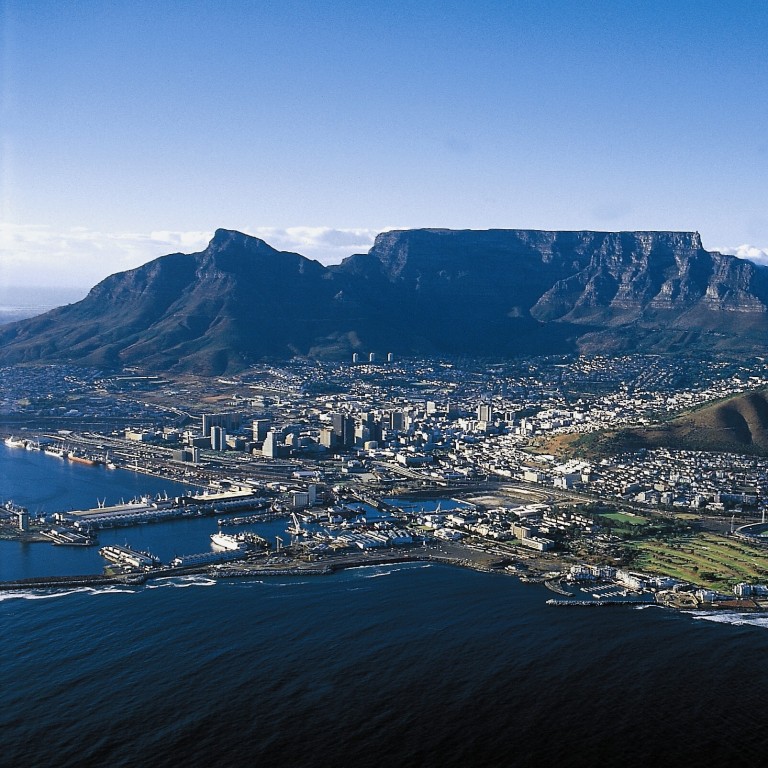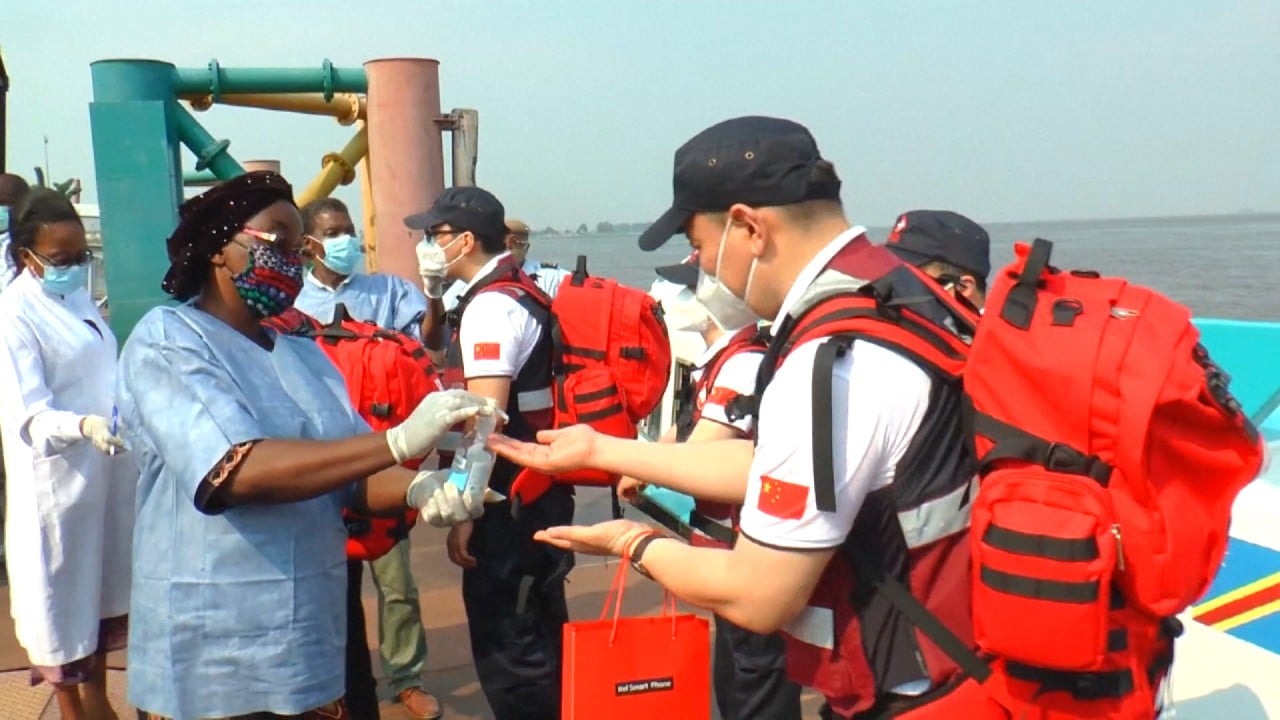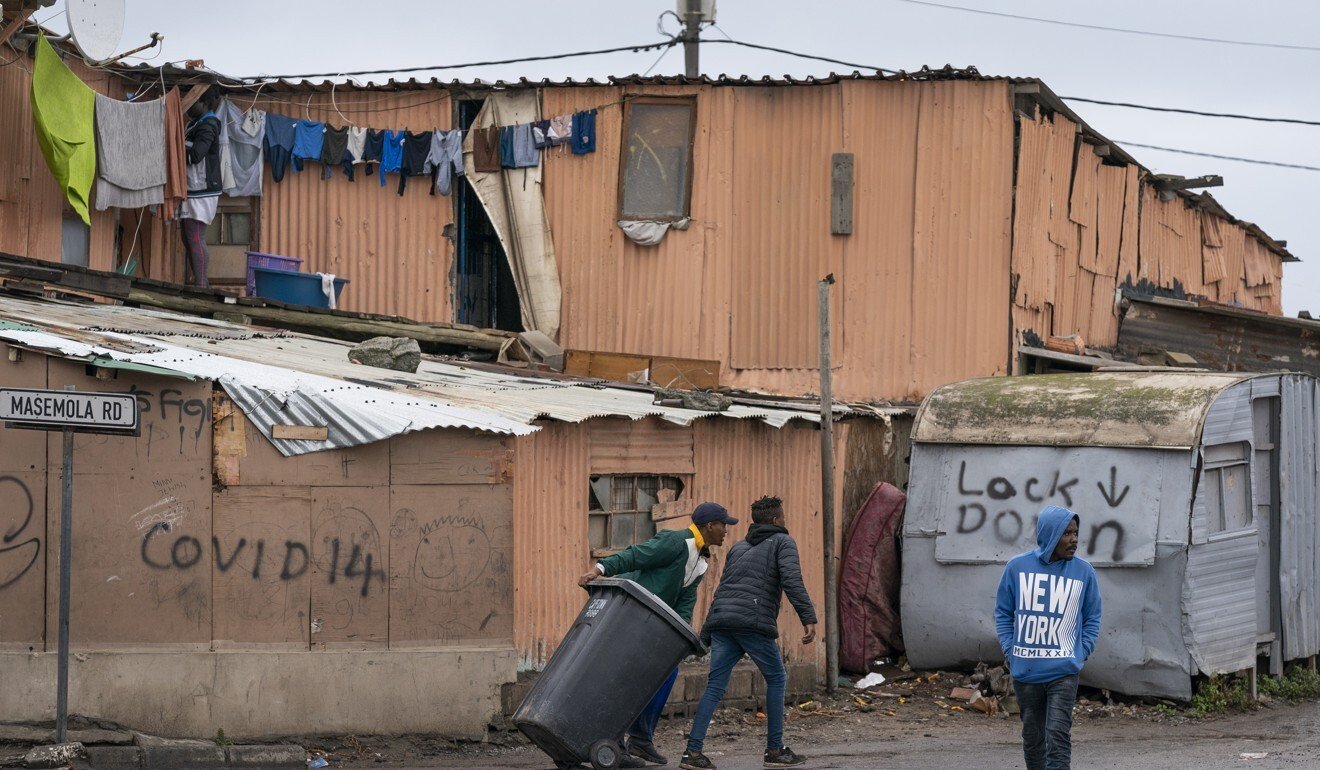
Cape Town becomes South Africa’s coronavirus hotspot
- Combination of densely populated townships and popular tourist sites blamed for high number of cases in Western Cape
- Number of new cases is accelerating sharply in country while cases across Africa double in less than three weeks
The Western Cape has emerged as the epicentre of South Africa’s coronavirus outbreak, with about two-thirds of the country’s confirmed cases.
Cape Town, the province’s biggest population centre, also accounts for about three-quarters of all deaths reported in the country.
Meanwhile, health experts expressed concern after the number of cases in Africa as a whole has doubled in less than three weeks.
On Thursday, the South African ministry of health confirmed 3,147 new cases, raising the total to 58,568. Coronavirus-related deaths rose to 1,284 – 966 of which were reported in the Western Cape.
The province’s high presence of Covid-19 cases is attributed to the region’s poor, densely populated townships like Khayelitsha, a shantytown of nearly 500,000 people.
It is also suspected that Cape Town’s mountains and beaches, which are popular with tourists, may have contributed to the high number of cases.
Before South Africa grounded all international flights, Cape Town had flight connections to most major European cities, many of which were badly affected by the outbreak.
The neighbouring province of Eastern Cape has seen the second-highest number of Covid-19 deaths in the country, and while the current death toll of 178 is far lower than Western Cape’s, the authorities are now preparing for an “upcoming surge” in cases.
Health minister Zweli Mkhize, said: “The numbers in the Eastern Cape are rising, whilst we know the numbers are increasing we’d like them to increase at a slower rate.”
Early this week, President Cyril Ramaphosa said he was worried because more than half of all cases in South Africa had been recorded in the previous two weeks.
“While these numbers are broadly in line with what the various models had projected, there is a big difference between looking at a graph on a piece of paper and seeing real people becoming infected, some getting ill and some dying,” Ramaphosa said.

02:39
China dispatches experts, medical supplies to African nations battling coronavirus
South Africa, which had already been in recession before the pandemic struck, relaxed its lockdown rules on June 1 to boost its ailing economy.
It allowed most businesses, churches and schools to reopen, as some experts warned that keeping restrictive measures in place would hurt the economy more.
Virag Forizs, Africa economist at London-based Capital Economics, said that even after further easing South Africa’s lockdown measures last week, a quarter of the economy remains closed.
“The impact of the lockdown on unemployment and insolvencies will cause long-lasting economic damage that will hold back the recovery. We now expect that GDP will shrink by 11 per cent over the year as a whole,” Forizs said.
The Chinese firms on the front lines of Covid-19 mask diplomacy in Africa
South Africa, which has a more developed economy and better health care system than most other African countries, accounts for more than 25 per cent of the continent’s total cases, according to the World Health Organisation.
However, the country has conducted more than a million tests, compared with a few thousand in many other African countries – raising the risk that the disease is spreading undetected elsewhere on the continent.
South Africa represents a small group of countries that have recorded a rapid increase in coronavirus cases and deaths in the past two or three weeks.

Africa as a whole has reported more than 200,000 cases, including more than 5,600 deaths, since the disease was first detected on the continent in mid-February 2020.
The WHO on Thursday said the pandemic was accelerating on the continent – it took 98 days to reach 100,000 cases and only 19 days to move to 200,000 cases.
The agency said 10 countries account for nearly 80 per cent of all cases, while more than 70 per cent of deaths have been recorded in only five countries: Algeria, Egypt, Nigeria, South Africa and Sudan.
More than half of African countries have seen community transmission. The WHO said many cases were confined to major cities, but the disease is also spreading into the provinces.
Africa’s young and rural population may limit spread and severity of coronavirus, study says
“For now Africa still only accounts for a small fraction of cases worldwide,” said Matshidiso Moeti, WHO regional director for Africa.
“But the pace of the spread is quickening. Swift and early action by African countries have helped to keep numbers low but constant vigilance is needed to stop Covid-19 from overwhelming health facilities.”
John Nkengasong, the director of the Africa Centres for Disease Control and Prevention, said that the situation was “likely to get worse before it gets better”.
“As we begin to relax some of the lockdown measures, which are part of balancing between saving lives and the economy, we expect to see the numbers will increase,” Nkengasong said.
He said lockdowns had allowed African countries to intensify public health measures.
Further, the continent’s testing capacity has increased rapidly from less than half a million tests about six weeks ago to more than three million tests now.

